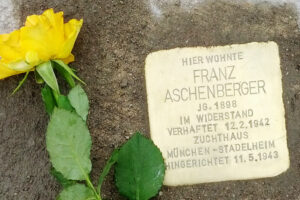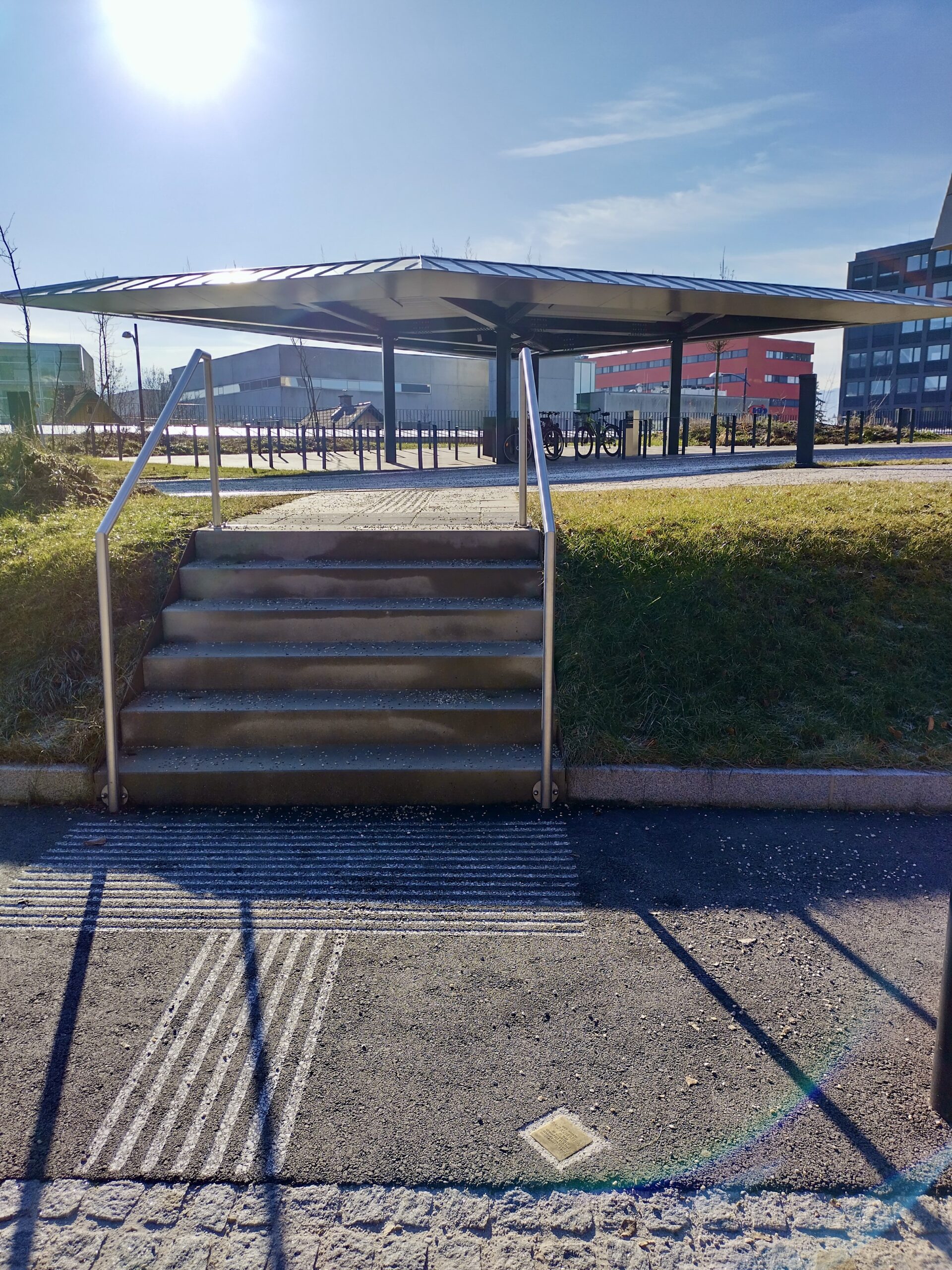Franz ASCHENBERGER was born in Lohnsburg (in the Ried district of Upper Austria) on July 11, 1898. He was a married railroad conductor whose daughter was born in Salzburg in 1924.
The Aschenberger family had local citizenship rights in the municipality of Gnigl and lived in the Itzling neighborhood – which belonged to the Gnigl municipality until it became part of the city of Salzburg in 1935.
Franz ASCHENBERGER was a member of the Social Democratic Workers’ Party and its associated railway workers’ union until they were banned by the Austro-Fascist dictatorship in 1934.
Later he was active in the railroader section of the Communist resistance movement to the Nazi regime organized by Franz OFNER and Anton REINDL.
Josef Haidinger was the leader of the railroader section and its maintenance and repair workers group, while Franz Aschenberger was the leader of the train personnel group and treasurer of the entire section. The railroader section had 40-50 members, which made it the largest Communist resistance organization in the Salzburg region.
Given the importance of the railroads for the war effort the Nazi regime considered it particularly dangerous.
At the beginning of 1942 the Gestapo was able to infiltrate, roll up and smash the regional Communist organization that was led by Anton Reindl in its last days.
In order to stifle forever any organized resistance movement, over the course of 1942 the Gestapo deported seven of the wives of members of the Gnigl and Itzling Communist organization to the Auschwitz extermination camp. Only one of the seven survived.
At least 32 Communist resistance members from the city of Salzburg were killed in the Nazis’ prisons and concentration camps. Eleven of the nineteen railroaders from the city of Salzburg who were murdered or died of the injuries suffered in their imprisonment were members of either the illegal Communist Party of Austria’s railroad maintenance and repair group or its train personnel group.
Franz ASCHENBERGER was arrested by the Gestapo on February 12, 1942 along with his comrade Josef Haidinger. On November 3, 1942 he was sentenced to death for »conspiracy to commit treason« by a »People’s Court« and on May 11, 1943 the 44 year old railroader was executed in the Munich-Stadelheim prison. In his parting letter he wrote:
… but my belief in the future tells me that things will be better for you later and that is my faith and makes my death easy. And a few more words for our child. Please, remain good, honest and strong, and protect and care for our Mama as long as God lets you.
My darlings! So live right well. Fate didn’t allow your Papa to live longer with you.
His loved ones had strikingly poignant words for the death notice they published in 1943:
…
Franz Aschenberger
Railroad-Conductor
who had to part from his loved ones in his 45th year with a heavy heart on May 11, 1943.
His widow was entitled to victim’s compensation in liberated Austria and died in Salzburg at age 89. On the initiative of the Salzburg State Association of Politically Persecuted Austrians, Concentration Camp and Prison Survivors, the bodies of their comrades murdered in Munich-Stadelheim – Franz Aschenberger, Josef Haidinger, Rudolf Hartl, Leopold Hock, Franz Pöttinger, Josef Thalhammer and Josef Wartinger – were exhumed from the forest cemetery in Munich-Perlach. On November 1, 1950 they were ceremonially reburied in the Salzburg City Cemetery with the participation of the Gnigl pastor Franz Dürnberger.
Quellen
- Salzburg City and State archives
Translation: Stan Nadel
Stumbling Stone
Laid 13.05.2013 at Salzburg, Itzlinger Hauptstraße 67





